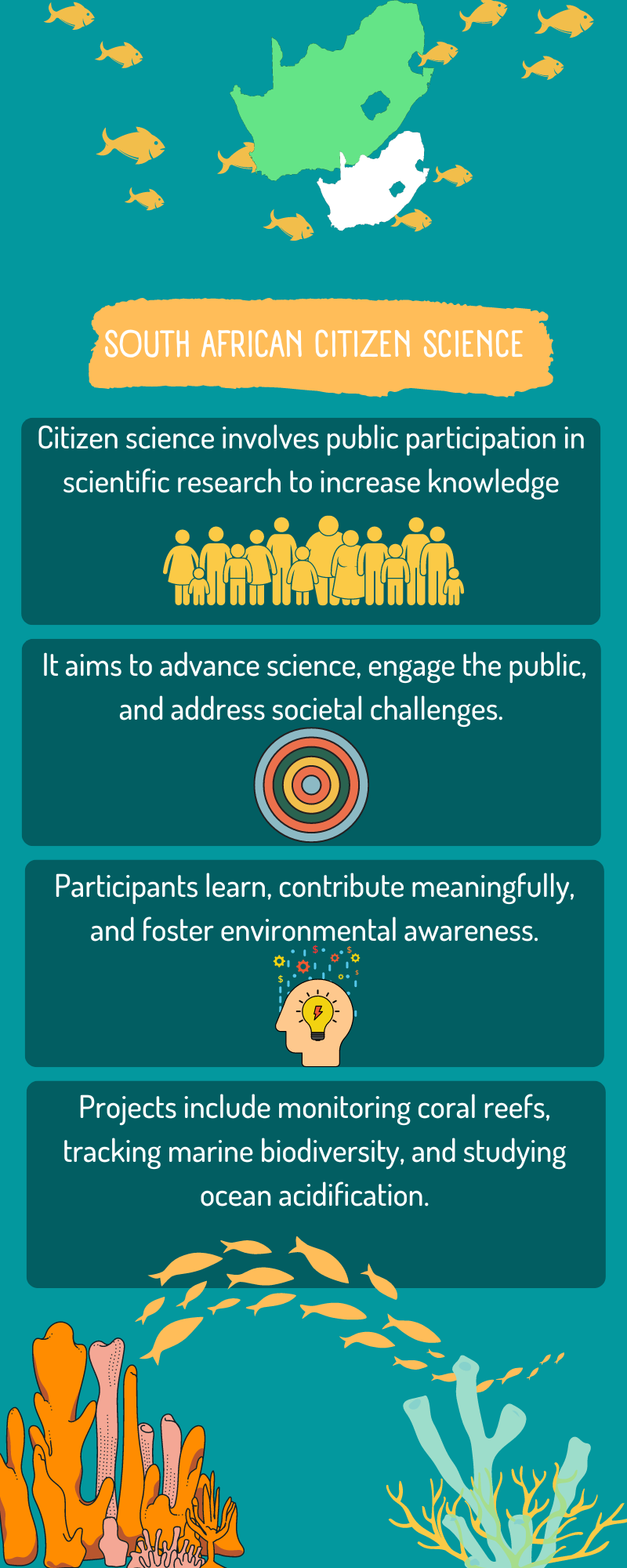
Empowering Communities: Citizen Science Evolution in South Africa
Posted by Zurike Marais on April 8, 2024
Citizen science, defined as the practice of public participation and collaboration in scientific research to increase scientific knowledge, has emerged as a powerful tool for fostering inclusive engagement with science.
In South Africa, this phenomenon finds resonance within a rich tapestry of scientific inquiry and community-driven initiatives. As we delve into the landscape of citizen science in this vibrant nation, we uncover a story of collaboration, innovation, and empowerment.

A Tapestry of Collaboration:
At its core, citizen science embodies the ethos of collaboration, uniting scientists, researchers, and the public in a shared quest for knowledge. In South Africa, this collaborative spirit finds expression across a diverse array of projects, ranging from wildlife-monitoring programs to online databases and community-based initiatives. Through these endeavours, participants—from amateur scientists and educators to community groups and students—contribute invaluable data and insights, enriching our understanding of the world.
https://www.wildlifetrusts.org/citizen-science

A Legacy of Engagement:
While the term "citizen science" may be relatively new, its roots run deep in the annals of history. In South Africa, people have long been participating in and contributing to scientific research. From the pioneering efforts of Wells Cooke in the late 1800s to the modern-day bioblitzes sponsored by organisations like the National Geographic Society, citizen science has been a driving force behind scientific discovery and conservation efforts. Through initiatives like the ORI Fish Tagging Project, volunteers have played a pivotal role in monitoring biodiversity and tracking environmental changes, laying the foundation for informed conservation strategies.

Harnessing Technology for Impact:
In recent years, technological advances have catalysed a renaissance in citizen science, expanding its reach and impact. With the widespread availability of smartphones and digital platforms, volunteers can now contribute data in real time, providing researchers with valuable insights into everything from climate change to species distribution. Projects like BugGuide, FrogWatch USA, E3C project, Happy Whale, and iNaturalist harness the collective power of digital communities to document and preserve biodiversity. At the same time, initiatives like Zooniverse invite armchair scientists to explore distant galaxies and unravel the mysteries of the cosmos—all from the comfort of their homes.
Overcoming Challenges, Embracing Opportunities:
Despite its many successes, citizen science in South Africa is not without its challenges. Factors such as low levels of literacy and economic inequality pose significant barriers to participation, particularly in marginalised communities. Addressing these disparities requires a concerted effort to promote science education, foster inclusive outreach strategies, and ensure equitable access to resources and technology. By empowering communities to participate in scientific research actively, citizen science has the potential to not only advance our understanding of the world but also drive social change and promote environmental stewardship.
Looking Ahead:
As we reflect on the journey of citizen science in South Africa, one thing becomes abundantly clear: the power of collaboration to transform lives and shape the future. By harnessing the collective wisdom and ingenuity of diverse communities, we can unlock new frontiers of knowledge and chart a course towards a more sustainable and equitable world. In the words of Rachel Carson, "In nature, nothing exists alone." Through citizen science, we have the opportunity to forge connections, bridge divides, and build a brighter tomorrow—for ourselves and for generations to come.

Credit: Kate Whitton